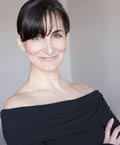I haven’t had a chance to read Rabbi Jen Krause’s book yet, but I agree with her that the rabbis were the first self-help coaches. I would add that was so because they had the first self-help manual: the Torah.
If you think about it, the Torah is really all about two things: relationships and finding balance. The Torah covers relationships with parents, siblings, spouses, kids, our neighbors, the poor and vulnerable, people we do know and people we don’t, and even those who want to hurt us or others. It deals with finding a balance between being productive and regenerative, between taking care of yourself and others, between being successful and living generously, between using resources and protecting them, between having and sharing, between doing and being. This is the stuff of most self-help manuals! Torah means teaching. Every letter and verse contains a teaching for how we can lead a better, more fulfilled, satisfying, and good life.
God is limitless. Revelation is limitless. But we human beings are limited. That’s why it makes sense to me that other traditions contain kernels of truth that are part of God’s revelation. Having studied meditation and various eastern traditions myself, I am always struck with how much of the wisdom of Torah has been ignored in so much of what has become of modern Judaism. The need to search outside Judaism is not a problem with Judaism as much as with the questions we have been asking of it.
The question that Rabbi Waxman and Rabbi Stern focus on–how much can we draw upon the outside world before we stop being true to our Jewish identity and tradition–is ultimately a twentieth century question. It is one of the central questions around which the Orthodox, Conservative, Reform, and Reconstructionist Movements organized and have continued to define themselves for the last century or more.
That debate just doesn’t speak to a generation, which is highly connected via the Internet. Most young people also seem to have little more than a passing interest in the historicity of the biblical text (whether the biblical record can be corroborated through archeology, etc.) or of rabbinic texts. Such questions motivated deep passion in an entire generation of Jewish scholars seeking acceptance in the non-Jewish world of the academy. But aside from the academy, such questions often fall flat.
Don’t get me wrong, I believe Judaism has always largely been a counter cultural religion, beginning with the Torah, which means it takes the best of the contemporary world and puts its own ethical spin on it. I also spend a good amount of my personal time on academic pursuits in the field of Talmudic studies. But I think rabbinical schools that focus almost completely on this type of training fail to prepare the next generation of rabbis for the most important of our twenty-first century questions like, “What can Torah and Judaism do to help me be a better person and help make the world a better place?”
A prospective convert just came into my office and told me one of the reasons he wants to convert is that Judaism helps him discover how to help make the world a better place. That is what the young generation is looking for. The answers to that question, and others, can be found in our own traditions, if we are willing to search for them and teach them.

